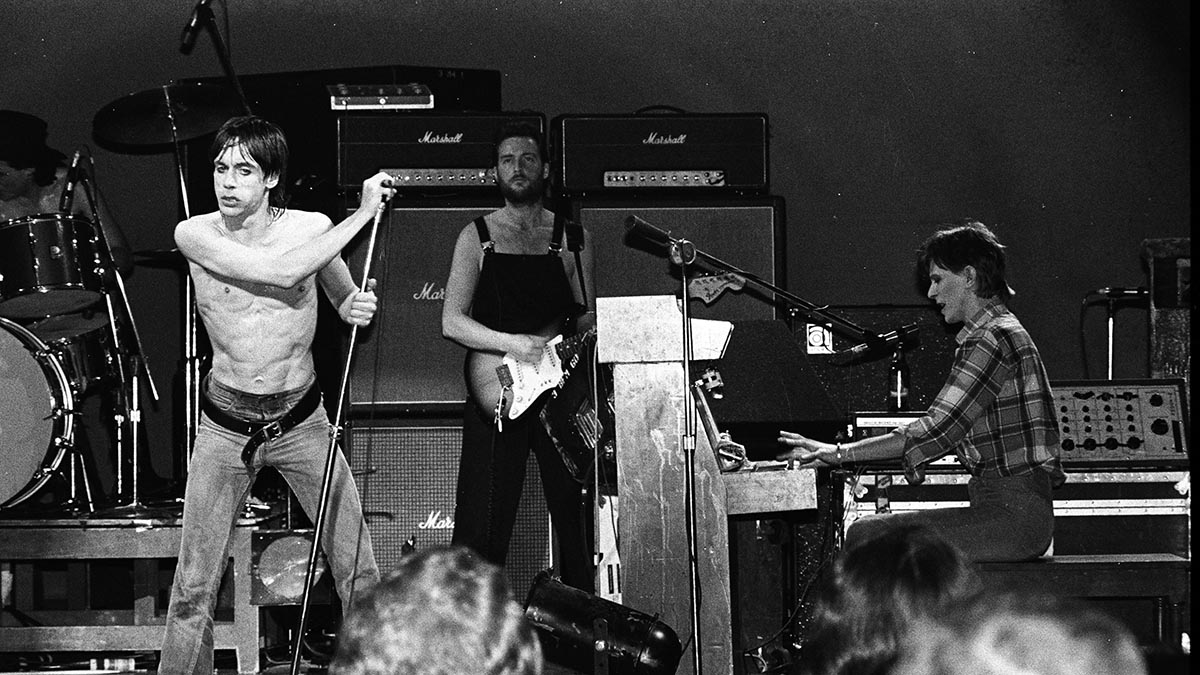Ricky Gardiner, guitar player with David Bowie and Iggy Pop, dies aged 73
Gardiner played on both Bowie’s Low and Iggy Pop’s Lust For Life, and in The Passenger, he wrote one of the best riffs of all time

Ricky Gardiner, the guitarist who wrote the iconic riff to The Passenger and played with both David Bowie and Iggy Pop on two of their greatest albums, has died aged 73.
Gardiner tracked lead guitar on David Bowie’s Low and later on Iggy Pop’s Lust For Life, both albums released within months of each other in 1977.
Tony Visconti, who produced Low and worked with Gardiner on his Inventory album, shared news of Gardiner’s death on Facebook after being notified by Gardiner’s wife, the composer and multi-instrumentalist Virginia Scott. Visconti said Gardiner was a “guitar genius”.
Iggy Pop was among the first to pay tribute, writing on Twitter, “Dearest Ricky, lovely, lovely man, shirtless in your coveralls, nicest guy who ever played guitar. Thanks for the memories and the songs, rest eternal in peace.”
Shirtless in coveralls is how many of Iggy Pop’s fanbase would have first encountered Gardiner when the Scottish guitarist was recruited to tour the former Stooges frontman’s debut solo album, The Idiot. The riff to The Passenger is perhaps how many will remember him.
The Passenger's chord sequence is one of the coolest riffs ever committed to tape – Am, F, C, G, Am, F ,C, E – played with an insouciant feel and skronky electric guitar tone. In January this year, Gardiner sat down with The Independent to share the story behind the song.
Gardiner revealed that the chord progression was “partially hypno-pompic” having came to him during a stroll one spring morning. It would soon spare his blushes in Berlin.
Want all the hottest music and gear news, reviews, deals, features and more, direct to your inbox? Sign up here.
“When I was invited to join David and Iggy in Berlin, I did not realise that they needed material, so I was unprepared when they asked me if I had ‘anything,’” said Gardiner. “My surprise was effectively covered when I recalled the aforementioned chord sequence and promptly played it to them on my unplugged Strat.”
Bowie, who was producing Lust For Life, loved it. Iggy Pop was in, too, and came through the next morning with the lyrics. Though Gardiner could not help thinking that the latter might have preferred something more feral.
“Iggy was open and receptive at the time but I suspect it did not have quite the same impact as a screaming chain saw which is his natural preference,” said Gardiner. “After we recorded it, he seemed very pleased. I must also mention the fine contribution that Carlos Alomar [a Bowie regular who was enlisted as rhythm guitar for the Lust For Life sessions] made to the recording – a very nice man and a good musician.”
The year previous, Gardiner had decamped to the Chateux d’Herouville studio in Paris to lay down guitars on one of Bowie’s most stylistically audacious albums.
He played rhythm on Breaking Glass with Alomar on lead, and took over on lead guitar for the remainder of Side A. On an album that is wall-to-wall highlights, Gardiner gave What In The World a scratchy anarchy, his guitar reaching heightening stages of fever as the track progresses, and applying a gnawing fuzz to Be My Wife.
Gardiner was born in Edinburgh in 1948. He taught himself to play. His website bio reveals he could sing famous arias “note perfect” by the age of two. His first band was the Vostoks, whom he joined in 1962 as a teenager, before playing with the Kingbees and the System. In 1969 he formed Beggars Opera, releasing six studio albums with the Scottish prog-rock band.
By 1978, and now a father, Gardiner retired from touring and set up a home studio, making music for meditation and experimenting with new sounds.
In 1985, a cumulation of his work with computer and guitar, he released The Flood, following it in 1987 with Precious Life, Symphony for Computer, Clarinet and Voice. Scott joined him on vocals and keys in 1994 for the improvisational ambient album Kumara Confluence, on which Gardiner uses an E-Bow to complement Scott’s keyboard pads.
By 1995, however, Gardiner was diagnosed with electrosensitivity, which left him unable to work with computers and a wide array of electric equipment, and meant he could not enter a recording studio.
Gardiner persisted. In 2006, he wrote on his website that he had spent years trying to develop an adapted studio, and continued to make music with Scott and his son, Tom. Gardiner had Parkinson’s at the time of his death.
Jonathan Horsley has been writing about guitars and guitar culture since 2005, playing them since 1990, and regularly contributes to MusicRadar, Total Guitar and Guitar World. He uses Jazz III nylon picks, 10s during the week, 9s at the weekend, and shamefully still struggles with rhythm figure one of Van Halen’s Panama.
